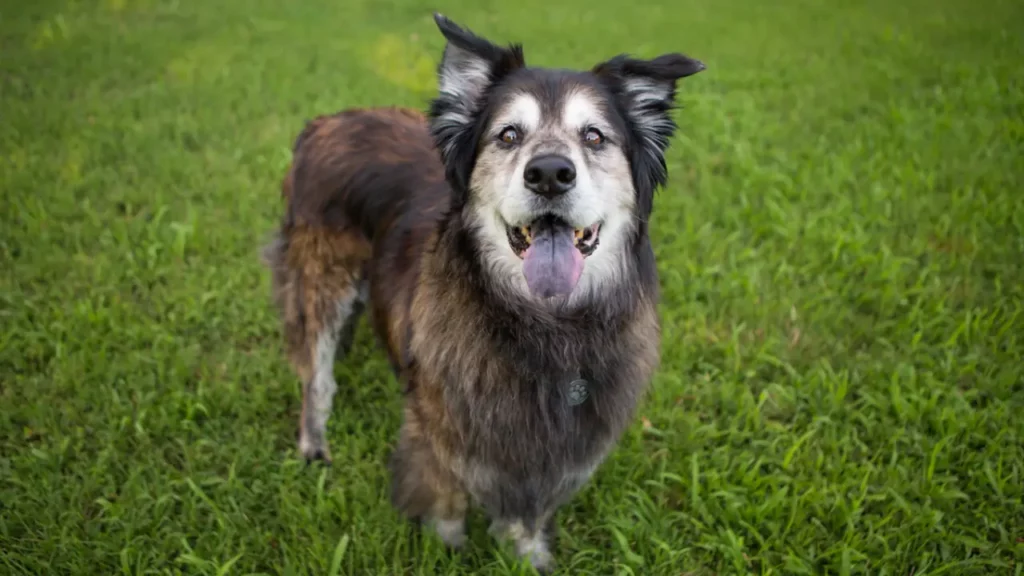How long can a dog survive?

For survival, dogs require food and water. However, they can live without food for around five days, otherwise, if they are healthy, they can live as long as they drink. Although dogs have been known to live long periods of time without food, there is a high chance that surviving without food would kill them or cause severe harm to their organs and tissues. This article includes “How long can a dog survive without food and water, How long do unhealthy dogs live without food. What you should do if your dog isn’t eating food, and Why your dog isn’t eating and drinking”.
How long can a dog live without eating any food?
Healthy dogs can survive three to five days without eating. But it doesn’t mean you shouldn’t call your veterinarian for so long. You should contact your veterinarian if your dog hasn’t eaten for over 48 hours. Additionally, bear in mind that dogs with underlying medical issues, those who are pregnant, or those who are nursing may not be able to go as long without food. While it is a general recommendation, remember that each dog is unique. Your dog might not be able to go as long without food if he isn’t as healthy or if his metabolism is different.
How long can a dog survive without water?
The length of time a dog may survive without access to water varies on a number of things, including the dog’s size, age, general health, surroundings, and amount of activity. A dog can, however, normally last three to five days without water as a general rule of thumb.
Common Symptoms include:
- Panting Lethargy
- Wet nose
- Sticky, dry gum
- Reduced appetite
- Skin elasticity loss
- Dense saliva
How long can an unhealthy dog live without food?
If your dog is suffering from bad health, going without eating food for five days would probably make him worse off. A dog’s ability to survive without food will be severely reduced if they are unwell or already weak from an underlying medical problem. Dogs need regular sustenance to sustain their bodily processes, and going for extended periods of are time without food can result in significant health issues like starvation, weakness, muscular atrophy, and organ failure. It’s critical to contact a veterinarian right away if your dog isn’t eating. They may assist in identifying the underlying cause, offer the proper medication, and revive your dog’s appetite, and take care of any potential health issues.
Why your dog isn’t eating or drinking? Reasons!
Your dog may not be consuming any food or water for a variety of reasons.
Some of the major reasons are given below:
-
Health difficulties
Due to several health issues, including dental problems, gastrointestinal disorders, infections, discomfort, or organ disfunction, dogs may lose their appetite or refuse to drink water. It’s crucial to see a veterinarian if your dog’s lack of appetite lasts for more than a day or is followed by additional symptoms like vomiting, diarrhea, lethargy, or weight loss.
-
Stress or anxiety
Changes in the surroundings, routine, or the presence of strange people or animals can all cause stress or anxiety in dogs.This may cause a brief decrease in appetite. This problem may be solved by locating and resolving the stressor.
-
Medication or Vaccination
Immunizations or medication administration, some dogs may momentarily lose their appetite. Usually a temporary side effect, you should see your veterinarian if it worsens or persists.
-
Food Preferences
Dogs may have particular food preferences or dietary problems, or they may not enjoy the flavor or texture of their meals. Another possibility is that the food has spoiled or has lost its attractiveness to the animals.
-
Environmental factors
If a dog is unhappy with their environment, they may refuse to eat or drink. They might avoid their food or water bowls, for instance, if they are located in a busy or noisy area. They may eat and drink more if there is a tidy, peaceful feeding place.
What should you do if your dog is not eating food?
If your dog hasn’t been eating for multiple days, you may need your veterinarian’s help to rule out any illness that needs treatment. If your dog isn’t eating, there are several steps you can take:
-
Monitor your dog
Pay close attention to your dog’s behaviour, activity level, and general health. Keep track of any additional symptoms they may be exhibiting, such as nausea, diarrhea, or fatigue.
-
Make sure the food is fresh
Fresh food is being stored correctly, and hasn’t gone bad by checking the diet and feeding schedule. Ensure the eating place is peaceful, pleasant, and free from any potential stresses because dogs can be sensitive to changes in their habit.
-
Access to fresh water at all times
It’s critical to ensure that your dog always has access to clean, fresh water. Encourage them to drink frequently because dehydration can make them less hungry.
-
Ask a veterinary for advice
It’s critical to seek veterinarian guidance if your dog’s lack of appetite lasts longer than 24-48 hours or is accompanied by other alarming signs. A veterinarian can evaluate your dog, perform the required diagnostic procedures, and offer a proper diagnosis and treatment strategy catered to your dog’s individual requirements.
Conclusion
Dogs need food and water to survive long. A dog’s duration without food and water might vary based on health, age, breed, and environmental conditions. The lack of water is more serious and can quickly cause severe dehydration, organ failure, and death. To stay hydrated and maintain their body functions, dogs usually need a steady water supply. Dogs can typically survive without food for a few weeks, though their health will gradually deteriorate to preserve their health and well-being, dogs must have access to clean water and a balanced diet.

